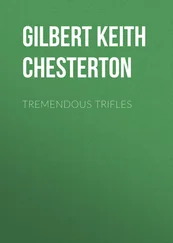Gilbert Chesterton - A Miscellany of Men
Здесь есть возможность читать онлайн «Gilbert Chesterton - A Miscellany of Men» — ознакомительный отрывок электронной книги совершенно бесплатно, а после прочтения отрывка купить полную версию. В некоторых случаях можно слушать аудио, скачать через торрент в формате fb2 и присутствует краткое содержание. Жанр: foreign_antique, foreign_prose, на английском языке. Описание произведения, (предисловие) а так же отзывы посетителей доступны на портале библиотеки ЛибКат.
- Название:A Miscellany of Men
- Автор:
- Жанр:
- Год:неизвестен
- ISBN:нет данных
- Рейтинг книги:4 / 5. Голосов: 1
-
Избранное:Добавить в избранное
- Отзывы:
-
Ваша оценка:
- 80
- 1
- 2
- 3
- 4
- 5
A Miscellany of Men: краткое содержание, описание и аннотация
Предлагаем к чтению аннотацию, описание, краткое содержание или предисловие (зависит от того, что написал сам автор книги «A Miscellany of Men»). Если вы не нашли необходимую информацию о книге — напишите в комментариях, мы постараемся отыскать её.
A Miscellany of Men — читать онлайн ознакомительный отрывок
Ниже представлен текст книги, разбитый по страницам. Система сохранения места последней прочитанной страницы, позволяет с удобством читать онлайн бесплатно книгу «A Miscellany of Men», без необходимости каждый раз заново искать на чём Вы остановились. Поставьте закладку, и сможете в любой момент перейти на страницу, на которой закончили чтение.
Интервал:
Закладка:
Now here is an actual instance, a small case of how our social conscience really works: tame in spirit, wild in result, blank in realisation; a thing without the light of mind in it. I take this paragraph from a daily paper: – “At Epping, yesterday, Thomas Woolbourne, a Lambourne labourer, and his wife were summoned for neglecting their five children. Dr. Alpin said he was invited by the inspector of the N.S.P.C.C. to visit defendants’ cottage. Both the cottage and the children were dirty. The children looked exceedingly well in health, but the conditions would be serious in case of illness. Defendants were stated to be sober. The man was discharged. The woman, who said she was hampered by the cottage having no water supply and that she was ill, was sentenced to six weeks’ imprisonment. The sentence caused surprise, and the woman was removed crying, ‘Lord save me!’”
I know no name for this but Chinese. It calls up the mental picture of some archaic and changeless Eastern Court, in which men with dried faces and stiff ceremonial costumes perform some atrocious cruelty to the accompaniment of formal proverbs and sentences of which the very meaning has been forgotten. In both cases the only thing in the whole farrago that can be called real is the wrong. If we apply the lightest touch of reason to the whole Epping prosecution it dissolves into nothing.
I here challenge any person in his five wits to tell me what that woman was sent to prison for. Either it was for being poor, or it was for being ill. Nobody could suggest, nobody will suggest, nobody, as a matter of fact, did suggest, that she had committed any other crime. The doctor was called in by a Society for the Prevention of Cruelty to Children. Was this woman guilty of cruelty to children? Not in the least. Did the doctor say she was guilty of cruelty to children? Not in the least. Was these any evidence even remotely bearing on the sin of cruelty? Not a rap. The worse that the doctor could work himself up to saying was that though the children were “exceedingly” well, the conditions would be serious in case of illness. If the doctor will tell me any conditions that would be comic in case of illness, I shall attach more weight to his argument.
Now this is the worst effect of modern worry. The mad doctor has gone mad. He is literally and practically mad; and still he is quite literally and practically a doctor. The only question is the old one, Quis docebit ipsum doctorem? Now cruelty to children is an utterly unnatural thing; instinctively accursed of earth and heaven. But neglect of children is a natural thing; like neglect of any other duty, it is a mere difference of degree that divides extending arms and legs in calisthenics and extending them on the rack. It is a mere difference of degree that separates any operation from any torture. The thumb-screw can easily be called Manicure. Being pulled about by wild horses can easily be called Massage. The modern problem is not so much what people will endure as what they will not endure. But I fear I interrupt… The boiling oil is boiling; and the Tenth Mandarin is already reciting the “Seventeen Serious Principles and the Fifty-three Virtues of the Sacred Emperor.”
THE ENCHANTED MAN
When I arrived to see the performance of the Buckinghamshire Players, who acted Miss Gertrude Robins’s POT LUCK at Naphill a short time ago, it is the distressing, if scarcely surprising, truth that I entered very late. This would have mattered little, I hope, to any one, but that late comers had to be forced into front seats. For a real popular English audience always insists on crowding in the back part of the hall; and (as I have found in many an election) will endure the most unendurable taunts rather than come forward. The English are a modest people; that is why they are entirely ruled and run by the few of them that happen to be immodest. In theatrical affairs the fact is strangely notable; and in most playhouses we find the bored people in front and the eager people behind.
As far as the performance went I was quite the reverse of a bored person; but I may have been a boring person, especially as I was thus required to sit in the seats of the scornful. It will be a happy day in the dramatic world when all ladies have to take off their hats and all critics have to take off their heads. The people behind will have a chance then. And as it happens, in this case, I had not so much taken off my head as lost it. I had lost it on the road; on that strange journey that was the cause of my coming in late. I have a troubled recollection of having seen a very good play and made a very bad speech; I have a cloudy recollection of talking to all sorts of nice people afterwards, but talking to them jerkily and with half a head, as a man talks when he has one eye on a clock.
And the truth is that I had one eye on an ancient and timeless clock, hung uselessly in heaven; whose very name has passed into a figure for such bemused folly. In the true sense of an ancient phrase, I was moonstruck. A lunar landscape a scene of winter moonlight had inexplicably got in between me and all other scenes. If any one had asked me I could not have said what it was; I cannot say now. Nothing had occurred to me; except the breakdown of a hired motor on the ridge of a hill. It was not an adventure; it was a vision.
I had started in wintry twilight from my own door; and hired a small car that found its way across the hills towards Naphill. But as night blackened and frost brightened and hardened it I found the way increasingly difficult; especially as the way was an incessant ascent. Whenever we topped a road like a staircase it was only to turn into a yet steeper road like a ladder.
At last, when I began to fancy that I was spirally climbing the Tower of Babel in a dream, I was brought to fact by alarming noises, stoppage, and the driver saying that “it couldn’t be done.” I got out of the car and suddenly forgot that I had ever been in it.
From the edge of that abrupt steep I saw something indescribable, which I am now going to describe. When Mr. Joseph Chamberlain delivered his great patriotic speech on the inferiority of England to the Dutch parts of South Africa, he made use of the expression “the illimitable veldt.” The word “veldt” is Dutch, and the word “illimitable” is Double Dutch. But the meditative statesman probably meant that the new plains gave him a sense of largeness and dreariness which he had never found in England. Well, if he never found it in England it was because he never looked for it in England. In England there is an illimitable number of illimitable veldts. I saw six or seven separate eternities in cresting as many different hills. One cannot find anything more infinite than a finite horizon, free and lonely and innocent. The Dutch veldt may be a little more desolate than Birmingham. But I am sure it is not so desolate as that English hill was, almost within a cannon-shot of High Wycombe.
I looked across a vast and voiceless valley straight at the moon, as if at a round mirror. It may have been the blue moon of the proverb; for on that freezing night the very moon seemed blue with cold. A deathly frost fastened every branch and blade to its place. The sinking and softening forests, powdered with a gray frost, fell away underneath me into an abyss which seemed unfathomable. One fancied the world was soundless only because it was bottomless: it seemed as if all songs and cries had been swallowed in some unresisting stillness under the roots of the hills. I could fancy that if I shouted there would be no echo; that if I hurled huge stones there would be no noise of reply. A dumb devil had bewitched the landscape: but that again does not express the best or worst of it. All those hoary and frosted forests expressed something so inhuman that it has no human name. A horror of unconsciousness lay on them; that is the nearest phrase I know. It was as if one were looking at the back of the world; and the world did not know it. I had taken the universe in the rear. I was behind the scenes. I was eavesdropping upon an unconscious creation.
Читать дальшеИнтервал:
Закладка:
Похожие книги на «A Miscellany of Men»
Представляем Вашему вниманию похожие книги на «A Miscellany of Men» списком для выбора. Мы отобрали схожую по названию и смыслу литературу в надежде предоставить читателям больше вариантов отыскать новые, интересные, ещё непрочитанные произведения.
Обсуждение, отзывы о книге «A Miscellany of Men» и просто собственные мнения читателей. Оставьте ваши комментарии, напишите, что Вы думаете о произведении, его смысле или главных героях. Укажите что конкретно понравилось, а что нет, и почему Вы так считаете.








